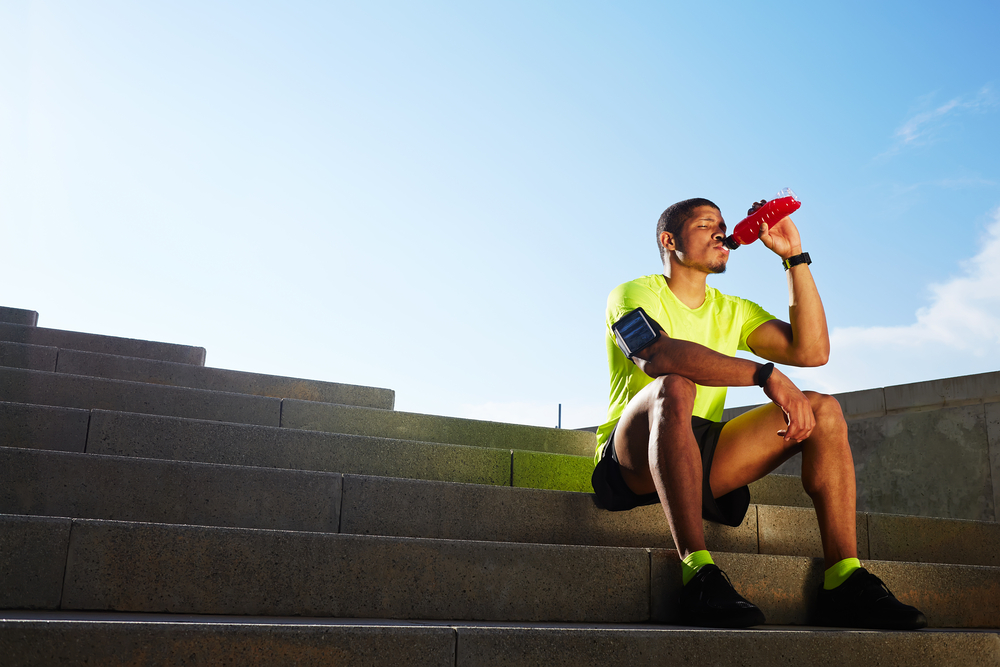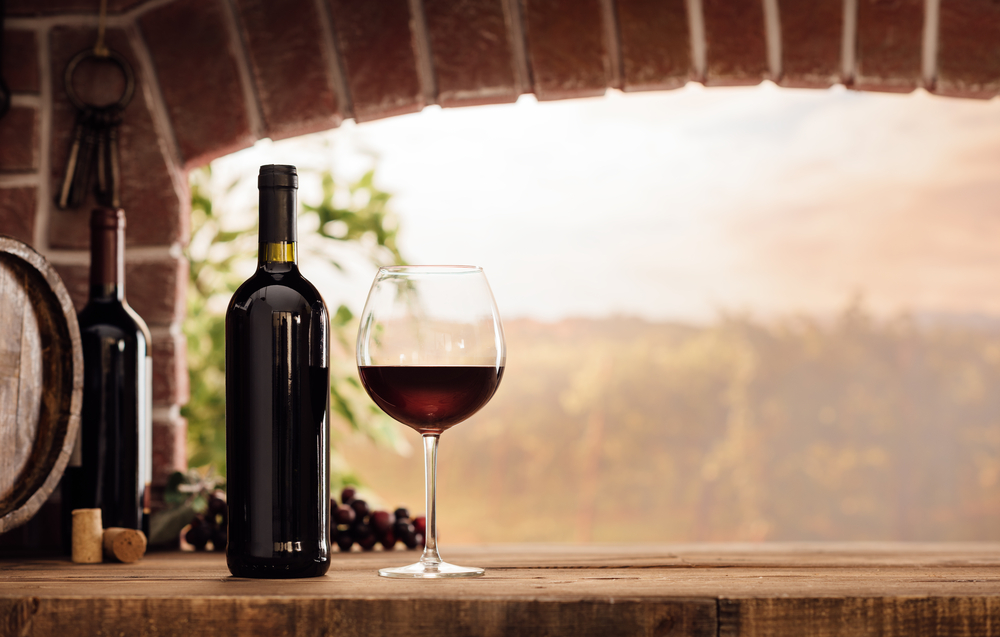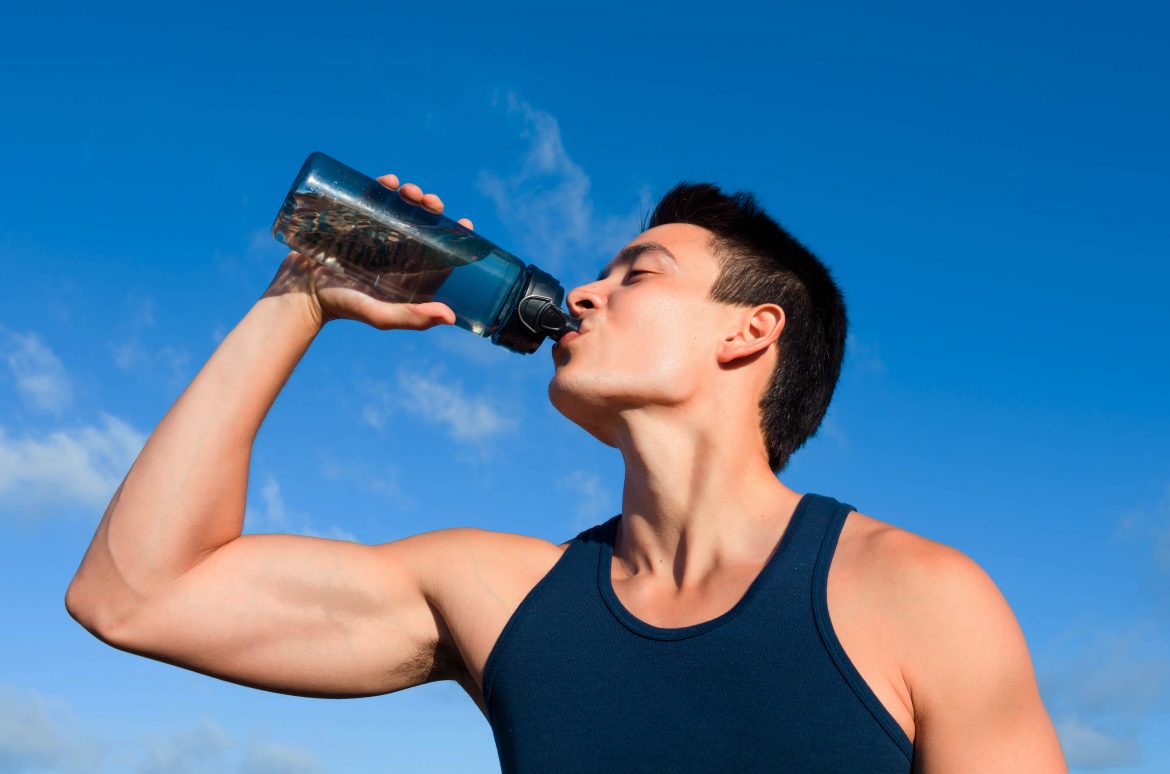On Earth Day everyone is encouraged to think about ways to help the planet, but we need to make every day Earth Day. In Erin Brockovich’s new book, Superman’s Not Coming, she lists the most impactful ways to do so, according to science. Unfortunately, many of the highest-impact changes a person can make are also ones that would dramatically alter their lives…things like “Have one less child” or “Stop using an automobile” are all great in theory, but most people are unlikely to completely change the trajectory of their lives just to be more green.
What if there were easy ways to change something you do multiple times every single day. What if you could make drinking more eco-friendly? Water is literally life. We need it. Animals need it. Plants need it. Without it, the planet would be nothing but a frozen rock hurling through space.
Because drinking is something that everyone needs to do, changing the way you drink can have massive impacts on the planet. We’ve taken five of the most consumed beverages on Earth: water, coffee, tea, wine, and sports drinks, and are sharing some ways to make each greener, lowering your carbon footprint. Read on to discover easy changes you can make in your lifestyle that will have positive, life-saving impacts on the planet!
Water

Photo: SedovaY
Water is the most-consumed beverage on the planet. Everyone needs it or we die. However, the industry of water is more pollutive than people think. Making plastic bottles and shipping them around the world requires lots of petrol, which emits CO2 into the atmosphere. However, as Brockovich also states in her book, America’s tap water can be horribly polluted. So, how do you ensure that you’re getting clean water that isn’t destroying the planet?
~ Research your tap water: The EWG and MyTapWater.org are both nonprofits that let you see your city’s record for tap water quality. They will tell you what chemicals were found in the tap water, and how many of those chemicals were found at levels that exceed the legal limit (meaning, the tap water could be hazardous to your health). If your tap water is safe, feel free to drink it! Plastic bottles are horrible for the environment, so if you’re lucky enough to have clean tap water, use it!
~ Buy a tap filter: If you don’t feel comfortable using water straight from the tap, attaching a filter to your faucet is an excellent way to clean your water, without having to buy it in a plastic bottle. Brita and PUR are two brands that have been in the filtration business for decades, and have now both become extremely affordable (you can buy tap filters for about $20 these days). Fresh, clean water…no water bottles. It’s a win-win!
~ Buy a reusable water bottle: Once you’re able to produce your own filtered water at home, there’s no reason why you can’t take it with you! Investing in a BPA-Free plastic water bottle is a great way to reduce your use of single-use plastic water bottles. An even better choice is glass, which doesn’t have any chemicals that can leach out into your water, plus, glass doesn’t trap in odor like plastic can.
Coffee

Photo: Kingmaya Studio
For many people across the globe, their mornings can’t begin until they’ve brewed their first cup of coffee. And even for those who don’t drink the robust brew, the aroma is a welcomed and intoxicating delight. However, not all coffee is made the same, and some of it is downright destructive to the planet. Jordan Karcher, the founder of Grounds & Hounds Coffee shares some of his expertise on how to ensure your coffee is as green as possible.
~ Choose the French Press over the Keurig: Keurig and Nespresso machines require a lot of energy to instantly heat water. Plus, tons of plastic is used to create the machine, and then you have all those brewing cups that need to be thrown away. Karcher says the French Press is a much less energy-intensive option and also makes a better tasting cup of coffee.
~ Grab that mug: Karcher gave a startling number: 50 billion single-use coffee cups are thrown away each year. This has a simple solution: buy yourself a mug…or two…or three! Have one at the house, one at the office, and one that you use for the car. Just think how many cups could you spare from the landfill if you were to reuse those three mugs for years to come.
~ Choose shade-grown coffee: Shade-grown coffee is way more sustainable than the typical plantation style. Whereas a traditional coffee plantation would cut down rainforest and plant heaps of coffee plants, shade-grown farms integrate coffee plants into an ecosystem, letting the trees that are already there serve as a canopy for the coffee plants. This reduces the amount of water the coffee plant needs, creates a home for a diverse array of wildlife, keeps the soil healthy, and it even produces a better flavor! Make sure you’re buying shade-grown beans, and checking for the organic and fair trade seals is also a good practice to get in the habit of.
~ Reuse the grounds: Karcher offered up a wide-ranging list of what can be done with used coffee grounds. He said that they can be used as a refrigerator deodorizer, garden fertilizer, or even an insect repellant. In fact, coffee grounds are actually known for being an excellent and nutritious soil for mushrooms.
Tea

Photo: Zadorozhnyi Viktor
While coffee may be the drink of choice in America, tea is the second-most consumed beverage in the world, behind only water. Tea offers a wide array of health benefits and is known for being antioxidant-rich and centering. So, drink up for your health, and follow these tips to sip for a healthier planet.
~ Drink sustainable tea: Teas flourish in nations that, sadly, don’t necessarily value environmental health over profits. With most tea coming from India, China, and Sri Lanka, it can feel like a bit of a minefield trying to uncover and navigate the sustainability initiatives of the farmers. Luckily, some tea companies are there to help. Be sure to look for tea that’s marked as organic, or buy from tea companies that are registered B-Corps, as these companies have to follow strict ethical and environmental guidelines. Arbor Teas, Rare Tea, and T2 are all tea companies that are out to revolutionize the tea industry and make it more ethical and sustainable.
~ Drink loose leaf: Loose-leaf tea is greener than tea bags because…there are no bags! Fewer bags means fewer materials and less waste. Plus, as all tea connoisseurs know, loose-leaf tastes way better than tea bags. Once you make the switch, you’ll be glad you did. Another bonus of loose-leaf tea is that, just like coffee, they make for a wonderful fertilizer. After brewing, they can be thrown into your garden or potted plants to help give the soil a nutrient boost.
~ Drink local tea: Local tea might sound crazy, but tea is starting to be grown in some very unconventional places. Tregothnan is growing their own tea in England. Charleston Tea Garden is growing tea in South Carolina. Zealong is growing tea in New Zealand…and the list goes on and on. A quick Google search can help you discover all the tea being grown in your own country. The closer the tea is grown, the less travel it has to go through to get to you, meaning less CO2 being produced through transportation.
Sports Drinks

Photo: GaudiLab
If there was one silver lining from the COVID pandemic, it’s that it reintroduced mankind to the great outdoors. The power and rejuvenating effects of nature were a lifesaver to many who couldn’t go to the gym. However, more time outdoors means it’s more important to remember to stay hydrated. But drinks like Gatorade create lots of plastic bottle waste. Here are a few ways to make your electrolyte drinks more eco-friendly.
~ Buy a powder: The absolute easiest way to go green is to simply buy electrolyte powders. Even Gatorade makes powder versions that are filled with all the carbs, sodium, and potassium that the bottles have. Simply add to water, shake, pour into in a reusable water bottle, and you’re all set…minus the plastic waste.
~ Make your own: If you really want to go for gold, why not try making your own sports drink? Epicurious offers up a delicious recipe that combines lemon, honey, and ginger. The best part of making your own drink is that you can source every ingredient to make the drink as sustainable as possible. Buy organic limes and lemons, local honey, and water from your own filtered tap, and you have the most sustainable sports drink around!
~ Buy bulk: If you really prefer the pre-mixed stuff, you can still lower your carbon footprint. Gatorade, and other sports drinks, sell gallon-sized bottles. Simply keep one in your fridge and refill a reusable water bottle. While you might not be reducing as much plastic, you’ll still be making an impact that, over time, can add up to a lot.
Wine

Photo: Stokkete
Wine lovers can also take steps to ensure that they’re investing in sustainable and ethical companies. Whether you’re a fan of whites or reds, it’s important to make sure that your wine is created with the lowest impact on the planet possible. And don’t throw out the bottles! They can be used for some really interesting projects. Read on to discover some of them.
~ Buy local: Traditionally, we’ve all heard of French wine, or Napa Valley in California, but in reality wine is being grown and produced all over the world, from rural Ohio to San Miguel de Allende in Mexico. Like all other things, the more miles wine needs to travel to your door equals the more carbon is emitted through transportation. Some grocery stores, like Whole Foods, even have local alcohol sections, which creates an easy space to find local wines.
~ Choose sustainable: Researching to see which wines are sustainable is always a good practice to get in the habit of. Not only can you tell how green a company is by their environmental policies, but it also gives you a glimpse into the soul of the company. Take Kendall-Jackson wine for example. They’ve enacted water conservation efforts, have solar panels installed at their winery, buy carbon credits, and have a minimum wage that starts at $15 an hour, even though their state hasn’t enforced a $15 minimum wage law yet. Buying from companies like Kendall-Jackson is a great way to support ethical and sustainable business.
~ Recycle and Reuse: Perhaps you’ve finished drinking and don’t know what to do with the leftover wine in the bottle. Before you dump the remainder, consider cooking with it! Wine adds a wonderful flavor to many dishes. And the wine isn’t the only thing that can be reused, there’s are many things that can be done with leftover wine bottles. They can be transformed into everything from vases to bird feeders. Or, if you do nothing else, at least remember to recycle the bottle.
You may also like:
7 Easy Ways to Lower your Carbon Footprint and Stop Climate Change
7 Easy Ways to Lower Your Carbon Footprint and Stop Climate Change


